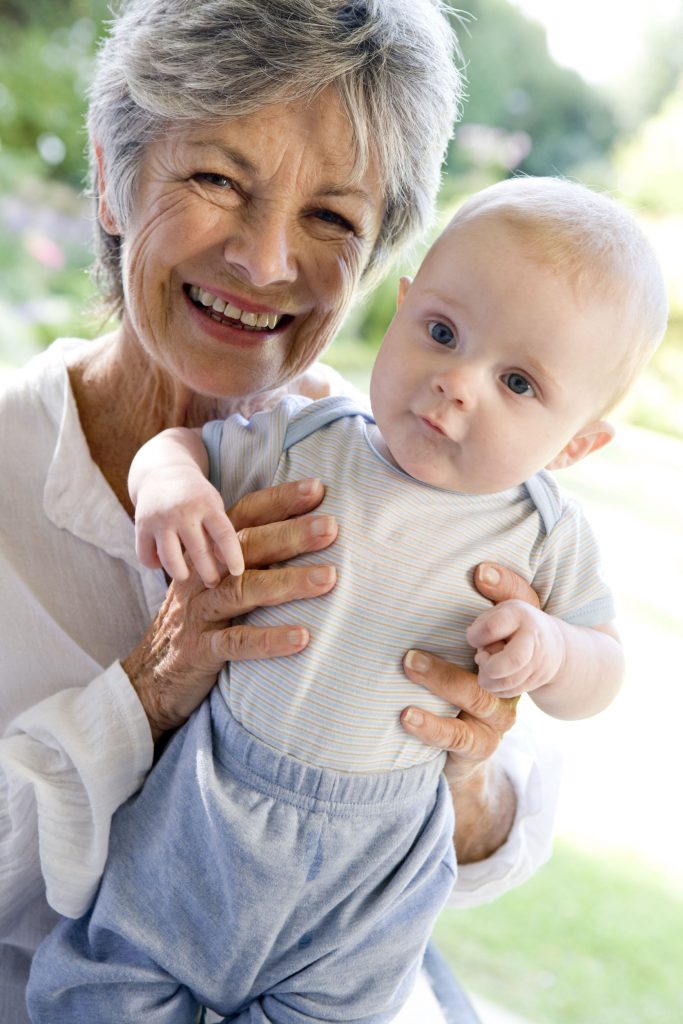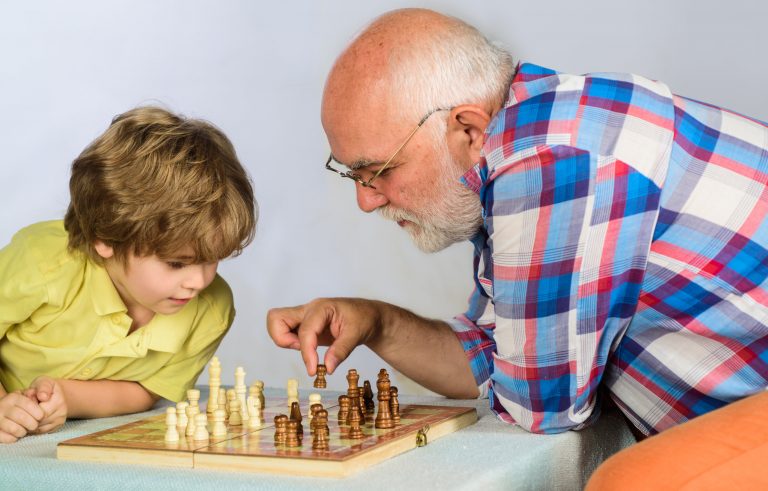Newborns need to learn to trust
Developmentally, a newborn does not need to know that you love them. They do not need to know how much you care. Newborns need to learn to trust you. Erik Erikson was a developmental psychologist and psychoanalyst. According to him, the first developmental task of a newborn is to learn to trust.
I read about Erikson’s Eight Stages of Development when I was pregnant with my first child. I’ve used the theory in various ways for over forty years. I first used the theory to focus on building my own newborns’ trust in me (I have four children). I saw this as crucial to my success as a new mom. As a nurse, I used the theory to gauge my patients’ success in navigating the adult stages of their development. Lastly, when my grandkids came along, I began to use the theory to focus on what they needed, and how I could make a contribution.

Who was Erikson?
Known for modifying Freud’s controversial psychosexual theory of development, Erikson lived from 1902-1994. He was one of the first theorists that defined healthy development across the whole human lifespan. He is the only theorist at the time that addressed the development of adults, as well as the development of children and adolescents.
Erikson explained that social interactions affect each stage. He also understood they there may be varying cultural implications for each developmental stage. Each culture will resolve each stage in different ways. The goal is how to best meet both the survival needs and to reflect the cultural identity. The goal of mastering each stage was to better prepare individuals to be productive and healthy adults.
After retiring from nursing, I began to look at where my grandkids were in their psychosocial development. I began to see how I was already a part of their social interactions. I realized that I could become even better at encouraging their healthy development by paying attention to the stages.
Why does Erikson matter for my grandkids?
We all want our grandkids to be healthy and productive human beings. It starts when they are newborns, because the first step to becoming a healthy and productive human being is to learn to trust. There is a task to master in each stage in Erikson’s framework. If the task is not mastered, there will be a crisis. The goal of mastery is to develop a healthy personality. Each subsequent stage requires competency in the previous stage in order to move toward a healthy personality. We all want our grandkids to be physically, mentally and emotionally healthy.
I also realized that there are cultural implications for my grandkids and their development. We are a Christian family. How does Christian faith impact the development of my grandkids into healthy human beings? I began to explore the impact of learning to trust God as foundational to Christian faith. Newborns need to learn to trust, and as people of faith they also need to learn to trust God.
The path is to resolve each crisis and master each task. After the crisis is managed, my grandkids will feel confident and will be competent to tackle the next stage. If the crisis is not managed, it will lead to feelings of inadequacy. Even worse, my grandkids will not be ready for the challenge coming in the next stage.

What are the eight stages of development?
- Birth to 12 months: Mistrust vs Trust
- 1-3 years: Shame and Doubt vs Autonomy
- 3-6 years: Guilt vs Initiative
- 6-12 years: Inferiority vs Industry
- 12-18 years: Role Confusion vs Identity
- 20’s-40’s: Isolation vs Intimacy
- 40’s-mid 60’s: Stagnation vs Generativity
- End of Life: Despair vs Integrity
Each stage requires mastering a set of attitudes, ideas and skills. Mastering a stage will prepare my grandkids to go on to the next task. When my grandkids masters each stage, they will grow into successful, contributing members of society.
During the first year of life, all newborns need to learn to trust in adults; that the world is both safe and predictable. This requires that my grandkid’s caregiver must be responsive to the infant’s needs. These needs must be meet in appropriate ways. Infants with unresponsive adults, or newborns whose basic physical needs are not met, will not learn to trust. Infants who receive unpredictable care, or cruel care, will not learn to trust. Their psychosocial growth will be stunted. When my newborn learns to trust in the first year of life, he will avoid the first potential crisis.
How does a newborn learn to trust?
Your newborn must first learn to trust his mother. Then, the father needs to establish his own trust relationship with his child. The trust relationship with you will come later. Your job is to support your adult children in bonding with their new child.
I had the opportunity to be with my daughter-in-law when her second child was born. I drove to Nebraska from Illinois to hang out with my oldest grandson, a two-and-a-half year old. We played outside in the snow and rolled rubber balls up and down the stairs. I also did some laundry and prepared meals. I let my daughter-in-law sleep and cuddle with her newborn. It was not the time for me to bond with my grandchild. His task was to learn to trust his mother.
When the time comes for you to have the care of your new grandchild, keep the same feeding, sleeping and awake schedule your adult children are using. Be responsive to their cries. Don’t let your feelings get hurt if your newborn grandchild is inconsolable with you,. You may need to give him back to mom. This may be especially true with breastfed babies. I also learned ways to hold my newborn grandchild while they were with me. In order to be hands free, my daughter-in-law taught me how to wrap and carry my grandkids when they were in my care. Side note, I had to develop physical stamina in order to meet the needs of my youngest grandkids.
The following are ideas for helping in the first year of life:
- support mom and dad bonding with the newborn
- pick up the slack with some of the home tasks, or offer to pay for a home cleaning service
- bring over a home cooked meal, or drop by take-out
- offer to run errands
- provide some fun time with older siblings to allow mom and dad time with the newborn
- discuss with your adult children the feeding and sleeping schedule and follow it closely
- pray for your grandchild to grow to trust the adults in their life
What are the benefits of laying a foundation of trust?
Establishing responsive, appropriate and predictable care turns babysitting the grandkids into a delightful experience. When I know what the routines are, what helps my grandchild eat and sleep well, my job as a caregiver is easier. Within the structure of predictable care, I can add my own embellishments to my grandchild’s experiences. When my newborn grandchild learns to trust his parents, he will then be able to learn to trust me. Newborns need to learn to trust.
To review, when your newborn grandchild learns trust, these lessons in trust with family will expand into trust for the wider community of adults and the world in general. We all know that the world is not always a safe place. We acknowledge that there are dangers out there. But we also know that it is also an amazing place. As Dean Koontz writes in Life Expectancy:
“No one’s life should be rooted in fear. We are born for wonder, for joy, for hope, for love, to marvel at the mystery of existence, to be ravished by the beauty of the world, to seek truth and meaning, to acquire wisdom, and by our treatment of others to brighten the corner where we are.”
We have an amazing opportunity as grandparents to introduce our grandkids to this amazing and wonderful world. When we help them navigate the tasks of growing up, we will see the success in our relationship with them. Love your newborn by supporting their parents in providing a foundation of trust. This foundation will allow your grandchild to later accept the gift of your love wholeheartedly.
In summary, a trusting relationship will be the basis of a loving relationship. Trust is built in the first year of life when responsive, appropriate and predictable care is provided to your newborn grandchild. When a strong foundation of trust is laid, your grandchild will be prepared to tackle the next task of childhood–learning autonomy. Your grandkids will need skills to explore the world and to exert some control over it. It is a good thing when your grandchild has had a hand in predetermining an outcome that they desired and worked for. This growth in autonomy is essential for future stages of childhood. We hope to have grandkids that can practice self-control and develop the freedom to act and function independently. But it starts when newborns learn to trust. Grandkids become our treasures. In a way, they can be considered the “Family Capital” piece of our lives.






3 Comments